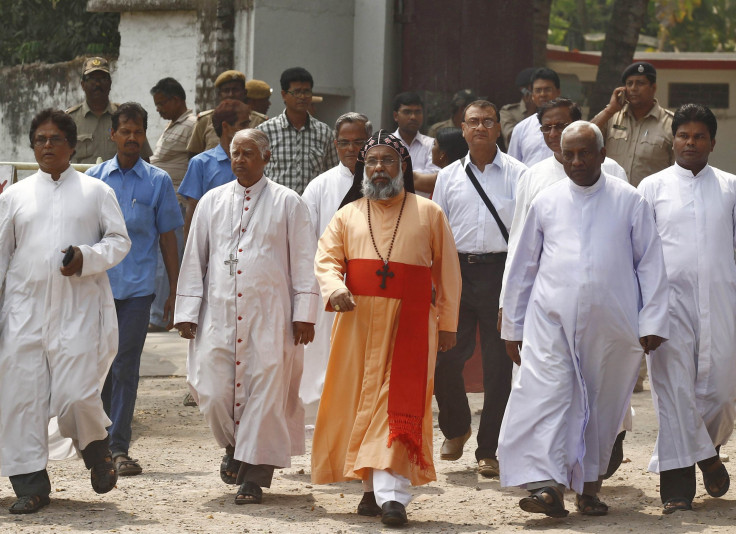India Nun Gang Rape: Catholic Leader Takes Aim At Hindu Nationalist Hard-liners After Attack

A top Catholic official in India has taken aim at hard-line Hindu nationalists following the alleged gang rape of a nun in the Indian state of West Bengal last week. Cardinal Baselios Cleemis, head of the country’s Catholic bishops, has said that India should be as concerned about the welfare of its people as it is about its cows, according to media reports Wednesday.
“The country has a responsibility toward all of us -- every human being -- and not just cows,” said Cleemis, in a statement reported by the Hindu. Hindu nationalists in the country have waged an increasingly successful campaign to ban the killing of cows, which are considered sacred by many Indians. The push has come alongside a growing public outcry by religious minority communities against intolerance, which many link to a rising tide of Hindu nationalism.
Campaigns to protect cattle have previously been used by Hindu nationalists as a means of vilifying religious minority groups in India, according to Reuters. In February, the western state of Maharashtra banned the selling of beef while the northern state of Haryana has also imposed strict penalties for killing cows. India’s population is estimated to be about 80 percent Hindu and 13 percent Muslim, with Christians and members of other faiths making up less than 7 percent.
No motive has yet been determined for the alleged rape of the 70-year-old nun at the West Bengal Convent of Jesus and Mary on Saturday. The group of men thought to be responsible for the crime also robbed and ransacked the convent school. Authorities have made no arrests yet. West Bengal’s chief minister delegated the case to a federal investigating agency Wednesday, the New York Times reported. While Christian leaders have said that they were not rushing to conclude that the attack was a hate crime, they argued that the circumstances of the attack raised serious questions that it may have been motivated by anti-Christian sentiment.
The high-profile incident is the latest in a series of attacks on churches in the country that have inspired fear among the country’s Christian community in recent months. Indian Prime Minister Narendra Modi vowed last month to crack down on religious intolerance, saying his government would not allow any group to “incite hatred against others, overtly or covertly.” However, critics have argued that the leader has not done enough to protect religious minorities and defend India’s tradition of secularism.
© Copyright IBTimes 2024. All rights reserved.












